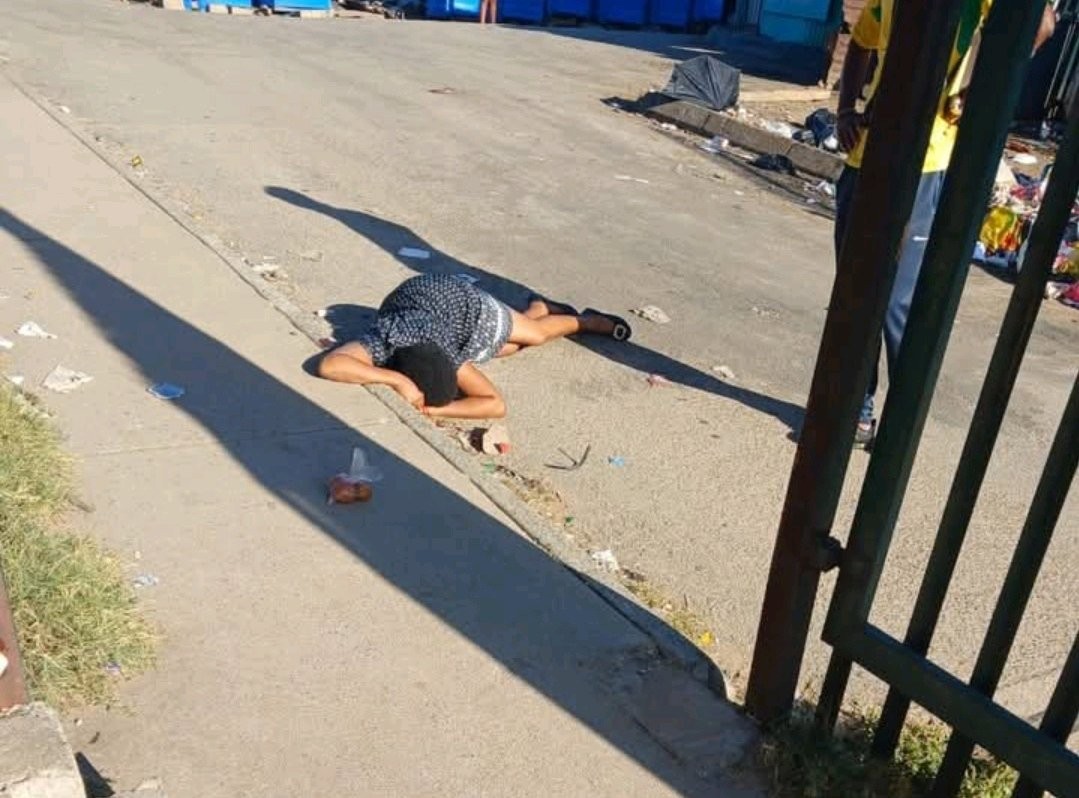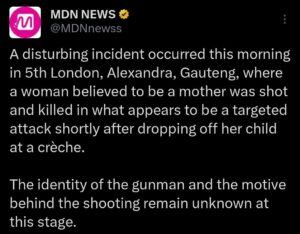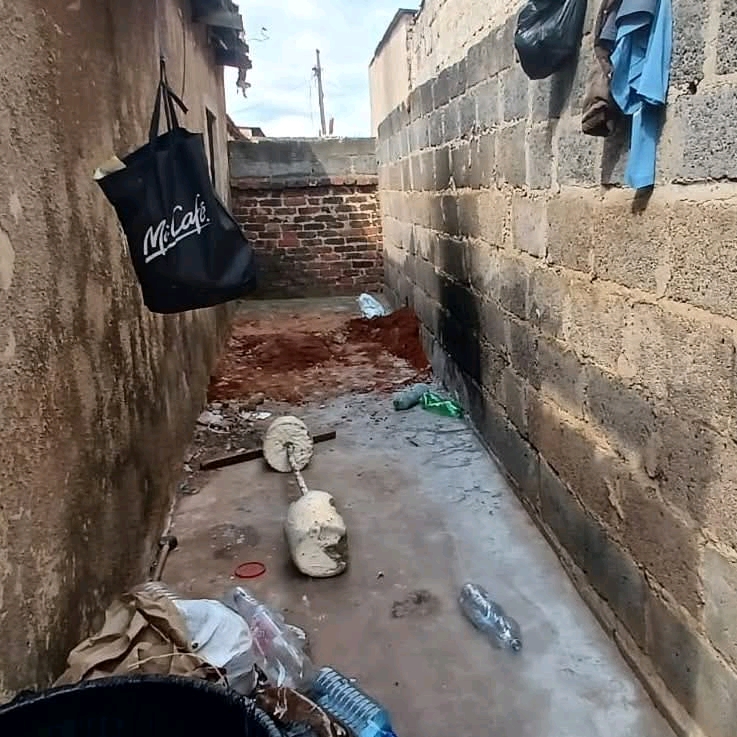
The recent shooting incident in Alexandra has sent shockwaves through the community, underscoring the pressing need to improve public safety and curb violence. For many parents, the fact that the violence occurred near a crèche—a place considered a sanctuary for young children—is especially disturbing. It challenges the very notion of safety in areas meant to nurture and protect the most vulnerable members of society.
Law enforcement must act swiftly and decisively in response to this tragedy. Not only is it essential to bring the perpetrator to justice, but also to reassure the community that their safety remains a top priority. Residents need to feel secure in their neighborhoods, and this requires a visible and effective policing presence, particularly in high-risk zones like 5th London, where such violent events have become more frequent.
One of the underlying issues contributing to this climate of fear is the widespread availability of illegal firearms. These weapons enable deadly acts of violence and embolden criminals. Authorities must therefore double down on efforts to eliminate illegal firearms through stricter enforcement and better cooperation with communities. Community engagement plays a crucial role here—it empowers residents to report suspicious activities and fosters trust between law enforcement and the public.
Beyond the immediate tragedy, this incident also raises broader concerns about the safety and treatment of women in South Africa. Gender-based violence remains a significant challenge across the country, and while the motive behind the Alexandra shooting is still unclear, the fact that the victim was a woman—potentially a mother—amplifies the urgency of addressing this crisis. Women should not have to live in constant fear, and systemic change is required to ensure their protection.
Efforts to combat gender-based violence must be multi-faceted. Education, awareness campaigns, and stronger legal measures are vital. However, these steps must be supported by genuine collaboration between local authorities, national government, non-profit organizations, and ordinary citizens. Only through a united front can society begin to shift the cultural and structural factors that perpetuate violence against women.
In conclusion, the Alexandra shooting is more than just a tragic event—it is a wake-up call. It highlights the urgent need for a coordinated response to crime and violence in South Africa’s communities. Authorities must respond with determination, but the responsibility does not rest solely on their shoulders. Community members, activists, and leaders all have a role to play in creating safer, more inclusive environments. The loss of life under such horrific circumstances should serve as a catalyst for lasting change. By confronting the root causes of violence and fostering collective responsibility, it is possible to restore hope and build a more secure future for all.




